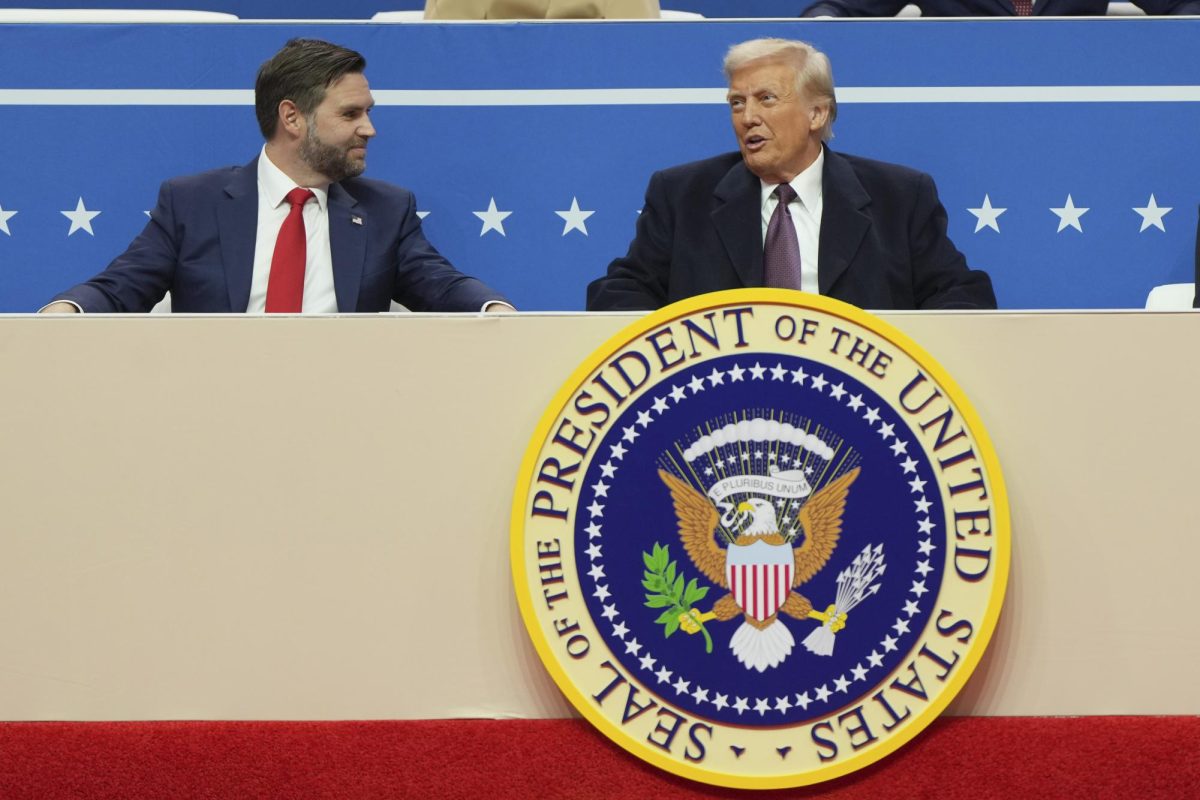With focus on the 2016 presidential race, another important race looms on the ballot: Louisiana’s Senate race.
So far, 24 candidates have qualified to appear on the ballot this November as they attempt to win the seat being vacated by David Vitter, who decided not to seek re-election following his loss in the 2015 governor’s race to John Bel Edwards.
The field of candidates appears particularly strong, including two current U.S. House representatives, a former U.S. House representative and the sitting Louisiana treasurer—and that’s just on the Republican side.
The Democratic vote will also likely be split, with Public Service Commissioner and 2007 candidate for governor Foster Campbell facing opposition from Caroline Fayard, an attorney with connections to the Clintons who ran unsuccessfully for lieutenant governor in 2010.
Within this strong field, there’s no question which candidate is receiving the most attention: David Duke.
Duke, who is running as a Republican, lost to Democrat Edwin Edwards in the 1991 governor’s election in a race that made national headlines due to Duke’s past roles as imperial wizard of the Ku Klux Klan and his previous membership in the American Nazi Party.
Duke, an avid white nationalist and published anti-Semitic conspiracy theorist, has run for office numerous times in Louisiana, most recently a U.S. House race that he lost in 1999. Duke’s sole victory came in a 1989 special election to replace an outgoing Louisiana state representative in a Metairie-area district. Duke won the seat and served nearly three years, but did not seek re-election, instead launching his race for governor.
Duke cites Donald Trump as his reason for returning to the political arena. Duke believes that Trump represents many of the values that he has been running on for his entire life. Duke hopes that voters who come to the polls for Trump will cast their ballots for him, as well.
And with so many candidates vying for the open seat, the vote will be split many different ways, with Duke likely receiving a large chunk of that. In his previous runs for office in Louisiana, Duke never received below 11.5 percent of the vote. In such a crowded field, that may be reason to believe that Duke is a serious candidate to make the runoff, as Sean Cain, Loyola associate professor of political science, explained.
“If David Duke is tapping into the same set of voters, who are some, but not all of Trump’s voters, he could potentially get into the top two,” Cain said.
And just as Duke plans to use Louisiana’s jungle primary system to his advantage, which allows the top two candidates to go to a runoff if no one receives 50 percent of the vote, Democrats are hoping that one of their candidates can make the top two.
According to Cain, the jungle primary allows for Democrats, who are generally unfavored in Louisiana, to have a better chance of winning. Cain attributes John Bel Edwards’ victory in the 2015 governor’s race in part due to the jungle primary system. But things may be more difficult for the Democrats this time.
“With John Bel Edwards, the Democrats had done something behind the scenes to clear the field for him, and it’s not quite cleared for the Democrats in this race between Fayard and Campbell,” Cain said. “So I think if it were completely cleared and there was just one Democrat, then that Democrat would have an advantage over the split Republican field. But because there are two Democrats splitting what’s probably less than 50 percent of the vote, it’s possible that neither of them will make the runoff.”
However, Democrat Foster Campbell, who currently serves as a public service commissioner in northern Louisiana, feels that experts are underrating his chances. Campbell believes that he will get many crossover votes from Republicans since he doesn’t view himself as a Washington-insider politician. He cites the fact that when running on the same ticket as fellow Democrat Mary Landrieu, Campbell received 62 percent of the vote in his district, while Landrieu came in at 42 percent.
“There’s an old saying in north Louisiana: there ain’t no wrong way to do the right thing,” said Campbell. “That’s what I operate on. I’ve never been a 100 percent vote for anybody. I’m not going up there owned by anybody. Now you take all the Republicans, they’re going up there and they’re against everything Obama was for. I’m not going to be against everything anybody’s for. I’m not ashamed of being a Democrat—I’m very proud of being a Democrat.”
Campbell also believes that his record of getting things done, instead of just coming up with ideas, gives him an advantage.
“You know, there’s another good saying that I’d like to ask all these people: Before you tell me what you’re doing, why don’t you tell me what you’ve done? I’m the only one in the race that has a record of doing anything. The rest have a record of talking,” said Campbell.
Campbell will face competition with fellow Democrat Caroline Fayard, who Campbell says criticizes him for being too old—a claim he denies, stating that he is the same age as Hillary Clinton. The Democrats will also be on the same ballot as Republicans in the Louisiana jungle primary. Among the major candidates are state treasurer John Kennedy, U.S. Rep. Charles Boustany, U.S. Rep. John Fleming, former U.S. Rep. Jospeh Cao and 2014 Senate candidate Rob Maness, none of whom replied to request for comment on this story.
The primary will be held on the same date as the presidential election: Nov. 8. If no candidate receives over 50 percent of the vote, the top two will face each other in a runoff in December.








Don • Sep 14, 2016 at 9:24 pm
Duke will win and that will be a huge win for America !!
Matthew • Oct 21, 2016 at 10:25 am
I see you’re scared of Jewish people.